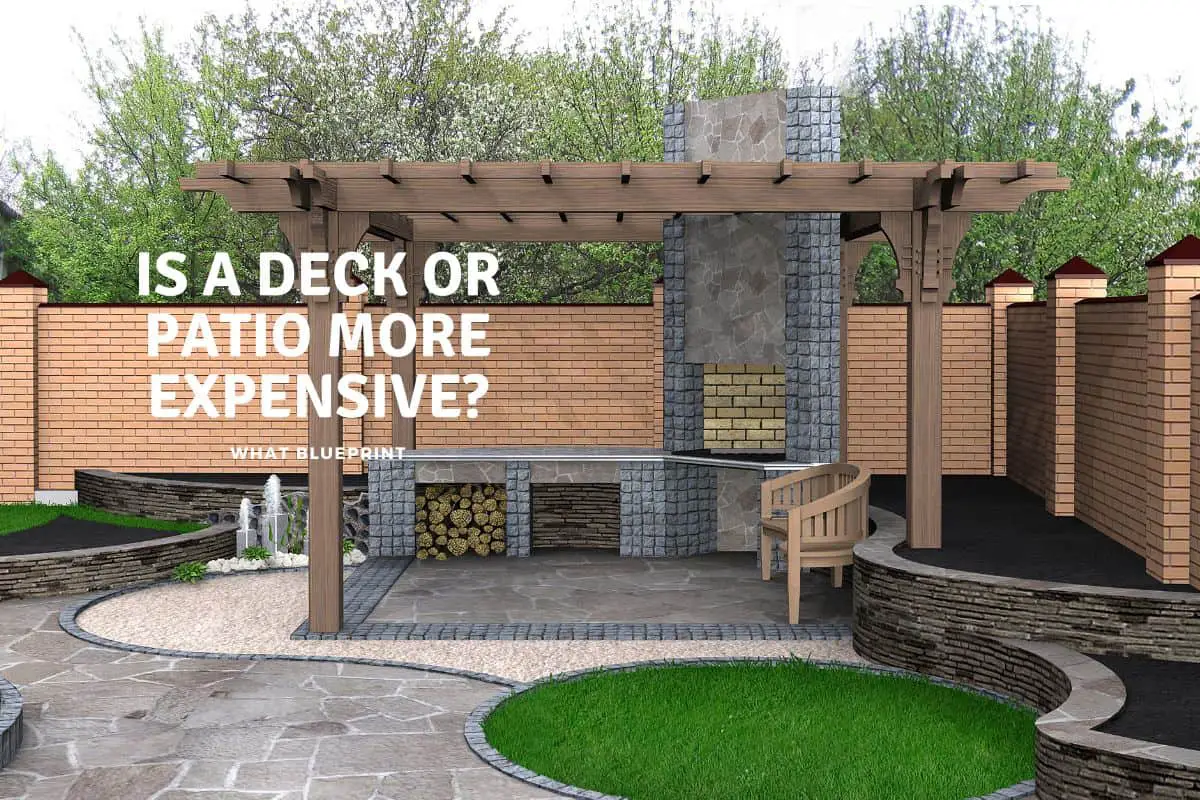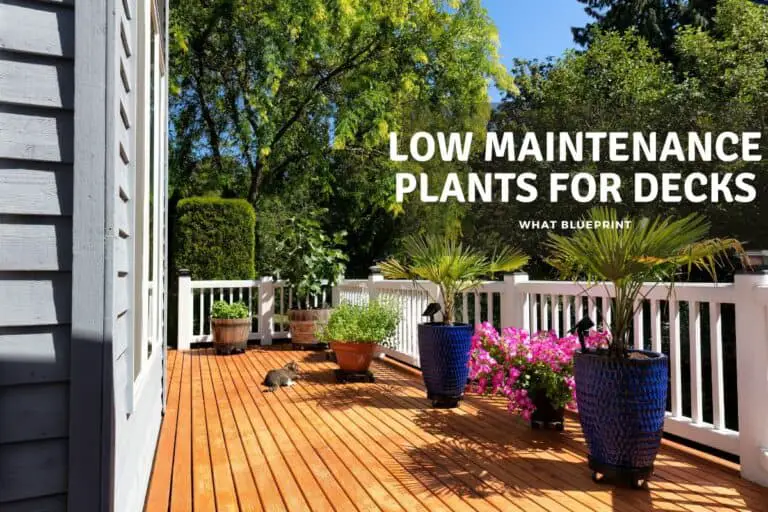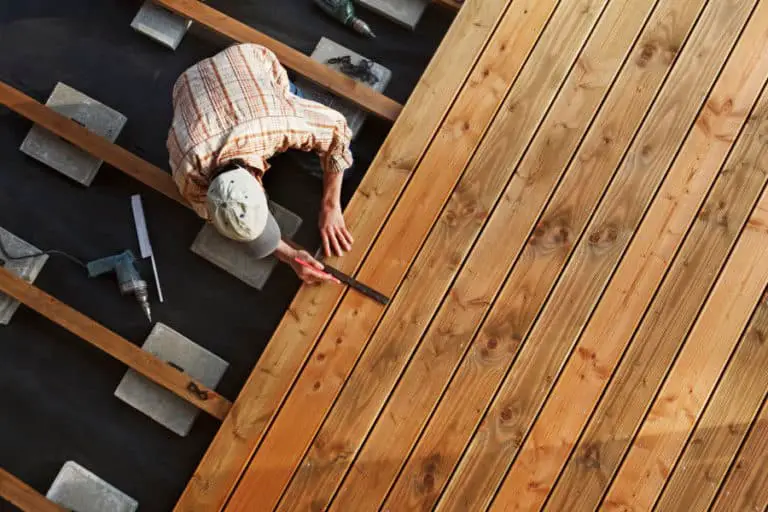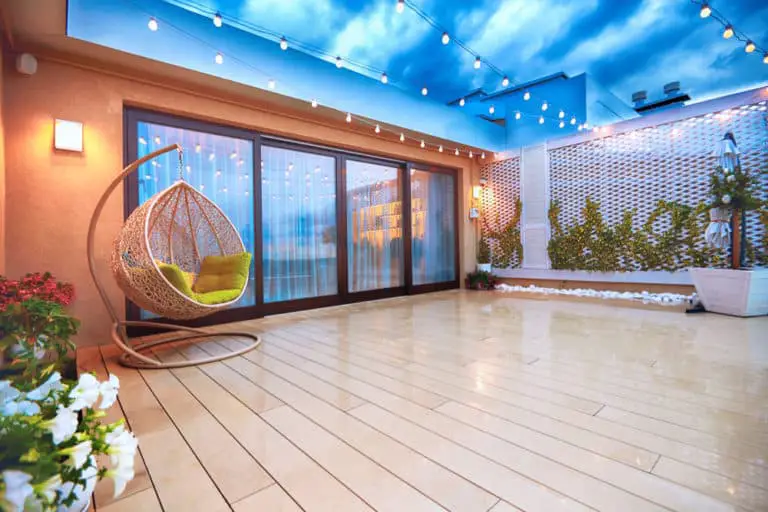Is A Deck Or Patio More Expensive?
If you want to do something special in your backyard, one of the obstacles you will face is whether to add a patio or a deck. Deciding between a patio or a deck will have a lot to do with the size you want to make your patio or deck and, the budget you have to work with. My friend wanted to upgrade her backyard a while back, and she asked me if a deck or patio was more expensive?
A patio usually costs less than a deck because the materials used when installing a patio are inexpensive and can be bought in bulk for much less than decking material. Patios are also less expensive to maintain, and patios can save on labor as you can build a patio in a DIY project.
I decided to research decks and patios to help my friend get the best deal that would suit her budget and be less expensive to maintain. I knew we weren’t the only ones who wanted to know if a deck or patio was more expensive, so I decided to share the most helpful information.
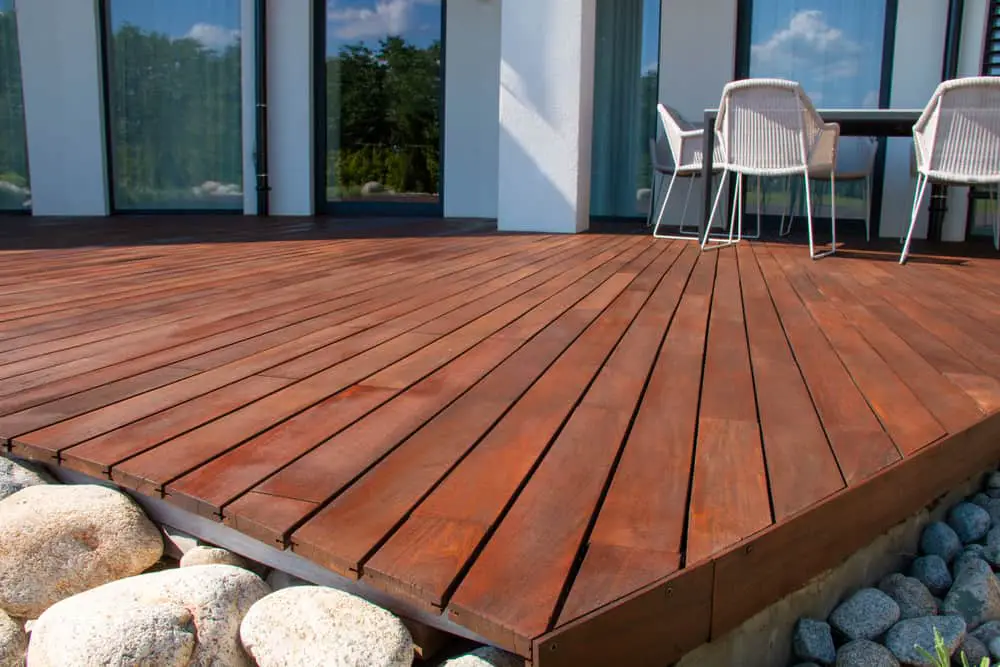
Is A Deck Or A Patio More Expensive?
When you want to do more with your backyard, one of the best ways is to install a deck or a patio. The big question is which one is more expensive? According to experts, installing a patio is less expensive than installing a deck.
Why Is Installing A Patio Less Expensive Than Installing A Deck?
According to leading experts in flooring, installing a patio is more affordable than installing a deck. Here are a few examples of how a patio is less expensive to install than a deck.
- Patios are made from less expensive materials like stamped concrete, stone, or pavers.
- Installing patios doesn’t require a permit or inspections in most cases, which lowers the cost of installing a patio.
- Because building a patio is less labor-intensive than building a deck, you can save a lot on labor costs by building your patio.
- You don’t have to build a raised patio, meaning you will be saving money on the railings, support beams, etc.
- Patios can last for years and years if the correct materials are used.
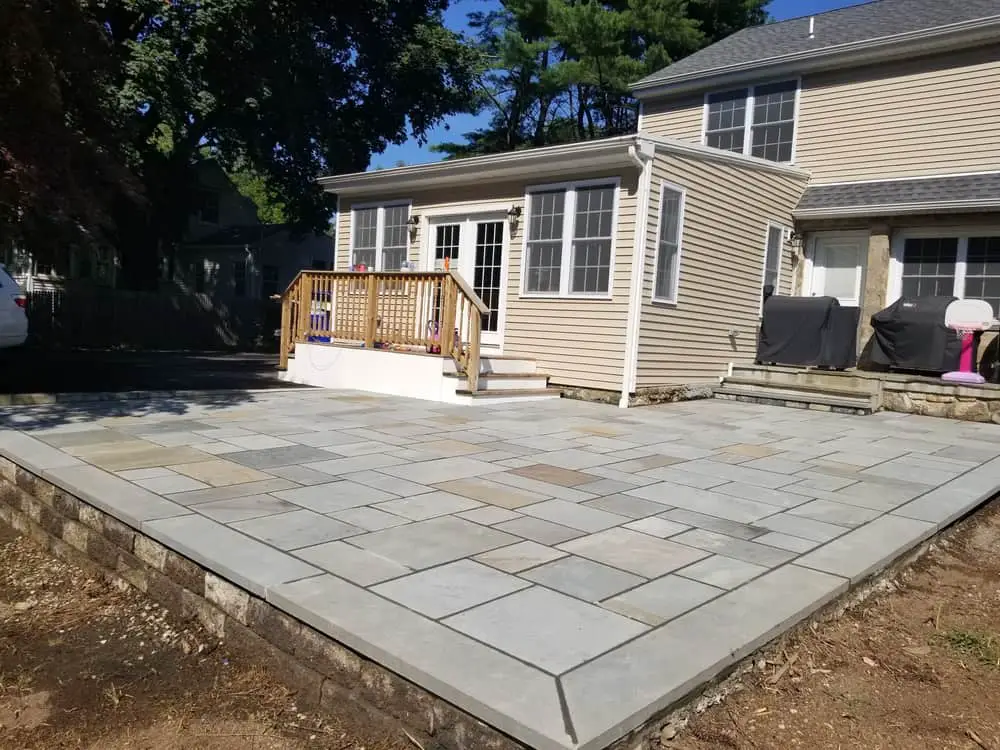
The Pros Of Installing A Patio
Before deciding whether to install a patio or save money and install a deck, it’s important to know both the pros and cons of each.
The Overall Cost
The overall cost of building a patio is less because you don’t need expensive building materials, and you don’t need to hire professionals to install the patio.
You also save on the pure design of the patio; patios are on the ground and don’t require you to dig very deep or be raised like some decks do. Therefore you save as you don’t need to spend money on railings, joists, support beams, and stairs.
The Building Time Required For A Patio
If you decide to take on building the patio by yourself or with the help of a friend, it should only take you a weekend to complete the job; however, you might need extra time to prepare the ground before you lay the pavers or pour the concrete.
The Building Codes And Local Regulations
While most patios don’t require building permits, and there aren’t many regulations, it’s always best to ensure your county has no building codes that will be violated if you build your patio.
Patios Are Less Maintenance
Overall, patios are much easier and take less time to maintain. You only need to clean the patio a few times a year. If you have a concrete patio and have acid etched the surface or sealed it, you will need to reapply the sealant once every two years.
Patios made using bricks or pavers won’t need to be resealed as they are very tough and won’t easily get damaged. They are also less slippery when it’s wet. If you chose smooth stone pavers, you might need to add a non-slip sealant to prevent accidental slips when wet.
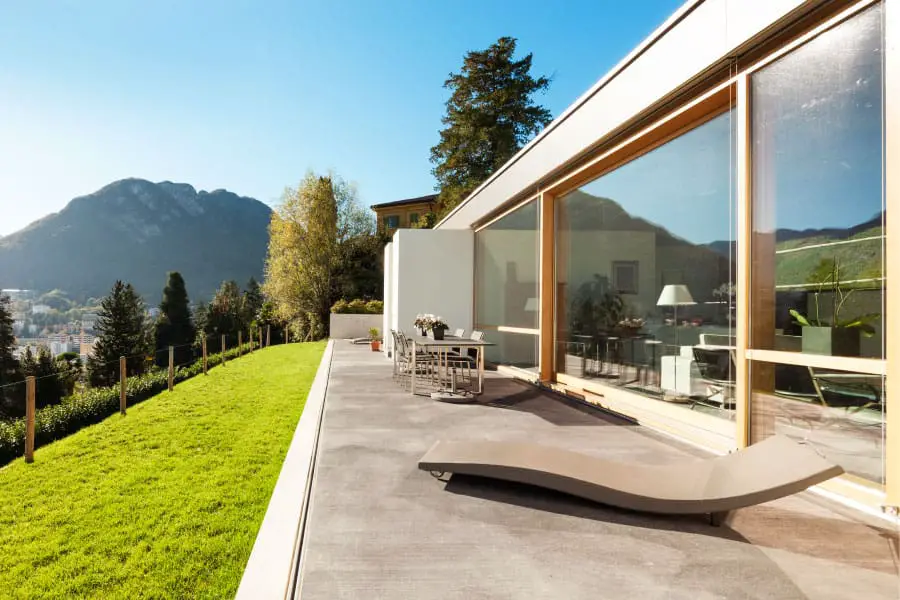
Patios Are More Intimate
While decks are sometimes raised, patios provide a more intimate feeling and give you more privacy as the patio is level with the ground. You can also add a partial screen to give extra privacy and create a cozy atmosphere. Often you can get more furniture on them as well. Yo can check out good options here.
Patios Are Durable And Have Longer Lifespan
Because patios are made with durable materials like rocks, stone, compacted cement, and pavers, these materials have a very long lifespan and can last as long as you need (at least 30 years) if you properly maintain them.
The only thing that will affect how durable it is is how well the ground was prepared beforehand and how well the subflooring was installed.
Cons Of Installing A Patio
While patios are inexpensive, there are quite a few disadvantages you need to know before making your final decision.
They Can Stain Easily
While patios don’t need too much maintenance, if you don’t regularly seal your concrete patio, or you have pavers or a brick patio, you need to wash the patio regularly as pavers and concrete are porous, meaning it absorbs spills, so a regular wash with a power washer will help keep it clean.
Concrete Patios Are Prone To Cracking
While patios will outlast most other outdoor floorings, concrete is prone to cracking over time. The cracking usually happens if the ground underneath the patio concrete is not compacted properly.
The other reason it happens is usually in areas exposed to the most extreme temperatures; when the day goes from very hot to very cold (or the other way around ), the concrete expands and contracts too fast, and over time it leads to cracking.
Patios Don’t Work For All Areas
While decks can be raised if you have uneven ground or ground that slopes, you can’t dot the same with patios. It costs a lot more to even out the ground for building a patio as you will need to pour a lot more concrete, and the ground preparation will take more time and labor.
Can Be Slippery
While pavers and bricks are not too slippery, if you install a concrete patio, you need to seal it to keep people from slipping when it’s wet. It adds to the overall cost, maintenance, and labor required to have a patio.
Might Require More Labor
If you decide to build a patio on uneven ground or where there is ground movement, you will need to extensively prepare the ground beforehand. For this, you will need to hire extra labor as you have to stabilize the ground and add reinforcement to keep the ground in place and the patio from sinking or breaking off.
When Installing A Deck Might Be Better For Your Needs
When unsure whether to install a patio or a deck, you might need to consider whether a patio will work for your needs. Here are a few things to consider.
Look At The Ground You Want To Use
If the ground you want to use is not even or the ground is unstable, it will cost more to install a patio. With ground like this, it’s better to install a raised deck as the support beams will help give the ground more structural integrity.
The cost of leveling uneven or sloped ground or adding support beams and then installing a patio is higher than installing a deck in this case, and installing a deck is a much safer option.
When You Need The Best ROI
While installing a patio is the cheaper option, it isn’t always the option that will give you the best ROI (return on investment). When you decide to sell your home, having a deck that is in good condition adds value to your home so you can sell it for more.
Patios don’t always age gracefully, and they don’t really add value to your home. So installing a deck might cost more, but if you are looking for an option to upgrade your home to resell it, going with a deck will give you more ROI.
What View Are You Interested In Seeing?
The view is the last thing you need to remember when deciding if a deck will be better suited to your needs. Installing a deck gives you a great view, as most decks are not built flush with the ground, and some are built raised. If you are interested in nature and have a lot of trees, having a deck will give you a better view than having a patio.
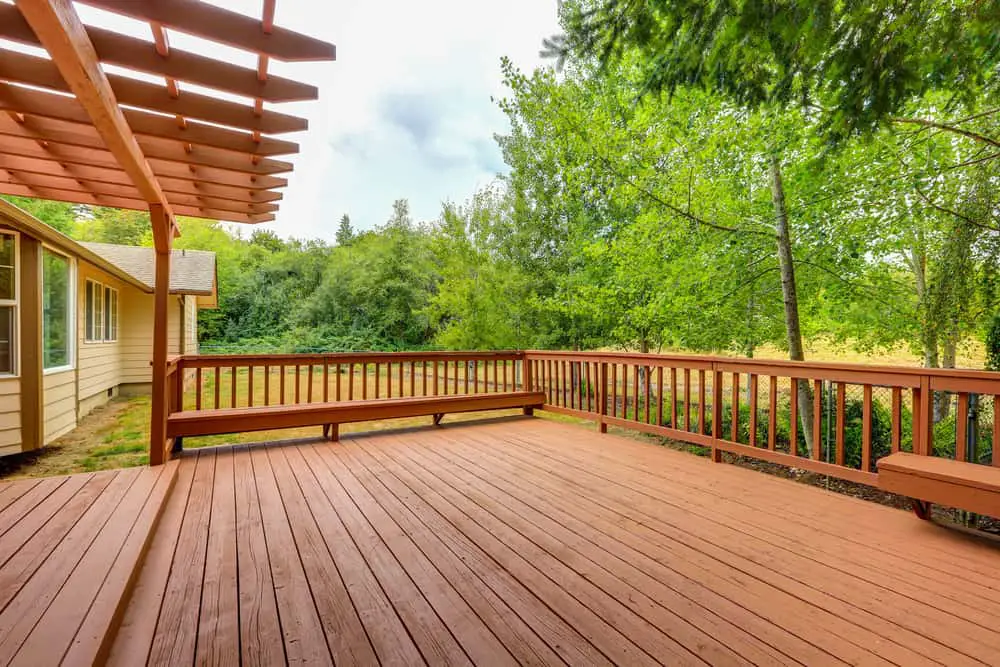
The Pros Of Installing A Deck
When you are undecided on whether to install a deck or not, it’s helpful to know more about some of the benefits of having a deck.
You Can Install Decks On Any Terrain
Decks are very forgiving regarding location, which is the opposite of patios. Decks can be installed on even ground at ground level, on uneven ground by evening the uneven sections out through support beams and support structures. You can install a raised deck if your home is on a slope or on unstable ground.
There Are More Types Of Decking To Choose From
One of the main benefits of installing a deck is that you can pick a range of materials to build your deck with. There are wooden decks, composite decks 50% wood and 50% plastic, vinyl decks, solid PVC decks, and more.
It’s great that you can choose the one that lasts the longest and has minimal maintenance, like PVC, or go for the more natural wood decking, which will require more maintenance but looks fantastic.
Some Decking Materials Don’t Stain
Decking materials made from PVC, vinyl, or composite decking have UV inhibitors that help them fade less in the sun and have a tough protective top coat that won’t allow your deck to absorb stains and marks. As long as you wash it off with soap and water, your deck should remain stain-free.
Deck Materials Don’t Absorb Too Much Heat
When it gets really hot in the summer months, the last thing you want is to sit outside on a hot (sometimes scorching) concrete patio. Most decking materials are made from materials that naturally absorb less heat. Its main function is to protect the deck from sun damage, but it has the added benefit of protecting your feet in the hot summer sun.
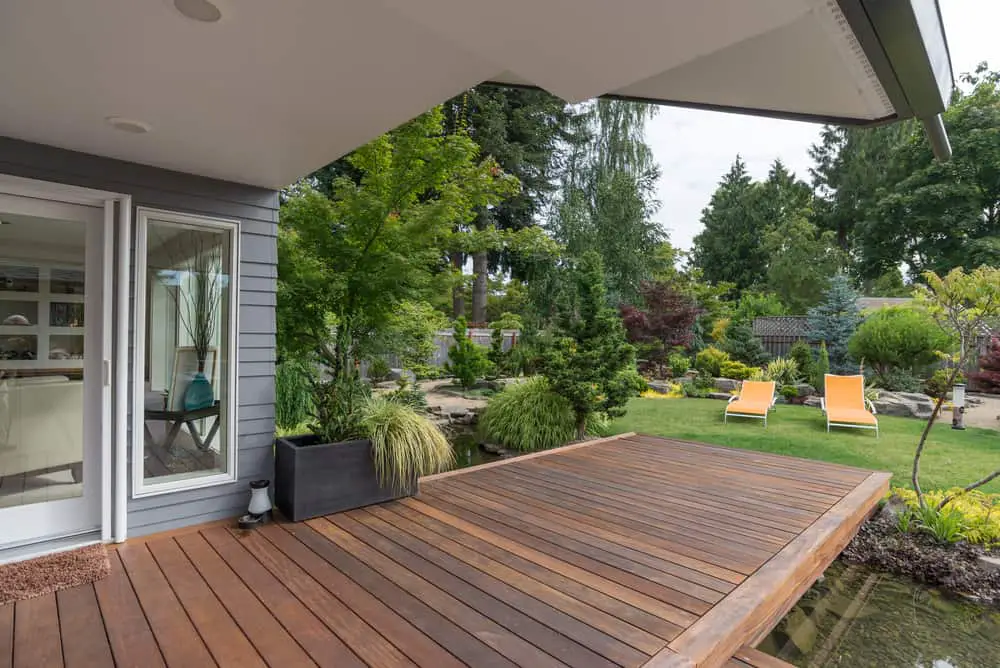
The Cons To Installing Decks
Just like you need to be informed about the benefits of installing a deck, the drawback is also important to know more about.
Some Decks Have A Lot Of Maintenance
When using certain decking materials, there is more maintenance involved than others; for example, if you choose a decking material like wood, you would need to maintain it regularly as wood needs to be resealed and repaired due to mildew and bugs, or wood rot.
Other decks don’t require lots of maintenance like PVC or certain composite decking options. They have a tough top layer that prevents all these things, with the added benefit of being fire and water-retardent.
The Regulations And Permits
As stated in a previous section, if you choose to install a deck, you need to get a permit, and there are building codes you need to follow. You need to adhere to these regulations because decks are attached to the home, making it an extension of the home.
As homes have building permits and need to be installed by professionals, the same goes for decks, as they can affect the home’s structural integrity and add to the home’s value if well built.
It’s Dangerous To Install Decks Yourself
While patios are easier to build yourself, decks can be tricky. Some counties frown on building your own deck as it might damage the home, or if done incorrectly, it could collapse and hurt someone. So you will need to hire a professional to install the deck, but you get warranties on your deck, so should something go wrong, you’re covered.
Conclusion
When you must choose between a patio and a deck, there are many factors to consider, and the price is the main factor. Installing a patio is less expensive than installing a deck, but decks can give you a better return on your investment. So you need to choose the one most beneficial to your needs.
References
- https://www.bobvila.com/articles/deck-vs-patio/#:~:text=Patios%20generally%20cost%20less%20to%20build%20than%20decks%20do.&text=Patios%20consist%20of%20more%20affordable,help%20keep%20the%20costs%20down.
- https://www.homeadvisor.com/r/deck-vs-patio/
- https://www.decks.com/how-to/articles/decks-vs-patios-cost-pros-cons-comparisons

